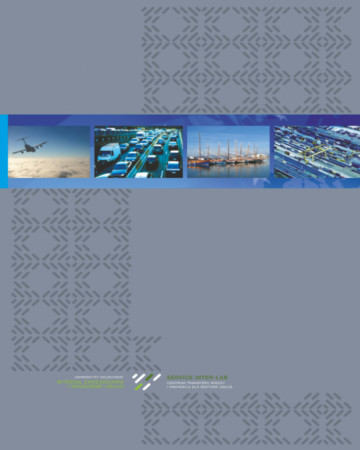
ISSN: 1644-275X
eISSN: 2353-3005
OAI
DOI: 10.18276/ptl.2016.36-12


Issue archive /
nr 4 (36) 2016
Zastosowanie społecznej odpowiedzialności biznesu (CSR) w przedsiębiorstwie żeglugowym
(Implementing Corporate Social Responsibility (CSR) in a Shipping Company)
| Authors: |
Natalia
Wagner
Wydział Inżynieryjno-Ekonomiczny Transportu, Akademia Morska w Szczecinie |
| Keywords: | CSR Corporate Social Responsibility shipping company |
| Data publikacji całości: | 2016 |
| Page range: | 9 (115-123) |
| Klasyfikacja JEL: | M14 R40 |
Abstract
This paper presents the main concept of CSR in shipping companies. The attention is paid to perception of shipping industry and actions that should be done for improving the image of European ship owners. A case study research is done. The research object is Maersk Line. The main achievements to date and aims from company’s sustainability strategy for 2014–2018 were analysed. The analysis shows that the main principle of implementing CSR should not mean to perform additional activities alongside the main business areas in order to improve company’s image. The idea of CSR should be combined with the main business area, it supposed to be the integral part of doing business.
Download file
Article file
Bibliography
| 1. | Alphaliner (2016). Pobrane z: http://www.alphaliner.com/top100/index.php (10.05.2016). |
| 2. | APM-Maersk Group (2016a). Pobrane z: http://www.maersk.com/en/the-maersk-group/sustainability/awards-and-recognitions (1.06.2016). |
| 3. | APM-Maersk Group (2016b). A.P. Moller-Maersk Group — Interim Report Q1 2016. Pobrane z: http://investor.maersk.com/ (5.06.2016). |
| 4. | APM-Maersk Group (2016c). A.P.Moller-Maersk Group Sustainability Strategy 2014–2018. Unlocking Growth for Society and Maersk. Pobrane z: http://www.maersk.com/en/the-maersk-group/sustainability/~/media/2ddaf141b19d4dfe9ae3772f8731dc7a.ashx (3.06.2016). |
| 5. | Błahy, A. (2006). Ograniczenia emisji CO2 – gdzie jesteśmy? Pobrane z: http://www.gospodarkamorska.pl/Porty,Transport/-ograniczenia-emisji-co2---gdzie-jestesmy.html (1.05.2016). |
| 6. | CMA CGM (2016). Interim Condensed Consolidated Financial Statements. Pobrane z: http://www.cma-cgm.com/static/Finance/PDFFinancialRelease/2016%20-%20Q1%20-%20Consolidated%20Accounts.pdf (4.06.2016). |
| 7. | Coady, L., Lister, J., Strandberg, C., Ota, Y. (2013). The Role of Corporate Social Responsibility in the International Shipping Sector. A Phase 2 Research Paper, The Northern European Symposium on CSR Shipping, Copenhagen, Denmark. |
| 8. | Elektrolux (2016). Pobrane z: http://www.electroluxgroup.com/annualreports/2015/en/sustainability/snapshots/joining-forces-for-sustainable-transport/ (6.05.2016). |
| 9. | Go-Maritime Project (2016). Pobrane z: http://www.go-maritime.net (6.04.2016). |
| 10. | Komisja Europejska (2016a). Pobrane z: http://ec.europa.eu/growth/industry/corporate-social-responsibility/index_en.htm (6.04.2016). |
| 11. | Komisja Europejska (2016b). Pobrane z: http://ec.europa.eu/maritimeaffairs/policy/blue_growth/index_pl.htm (15.04.2016). |
| 12. | Maersk Line (2016). Pobrane z: http:// www.worldslargestship.com (4.05.2016). |
| 13. | PN-ISO 26000:2012. |
| 14. | Psaraftis, H., Kontovas, C. (2013). Speed Models for Energy – Efficient Maritime Transportation: A Taxonomy and Survey. Transportation Research Part C, 26, 331–351. |
| 15. | Seaprof (2016). Pobrane z http://seaprof.com/2016/01/16/smoking-ships-and-smoking-guns-imos-rescueof-green-shipping-from-a-cop-21-world-where-pigs-can-evidently-fly/ (16.01.2016). |
| 16. | Theotokas, I., Bissias, I. (2014). A Touch of Salt: The Image of Shipping in Newspapers of the UK. WMU Journal of Maritime Affairs, 13 (2), 177–190. |
| 17. | Third IMO Greenhouse Gas Study 2014 (2015). London: IMO |